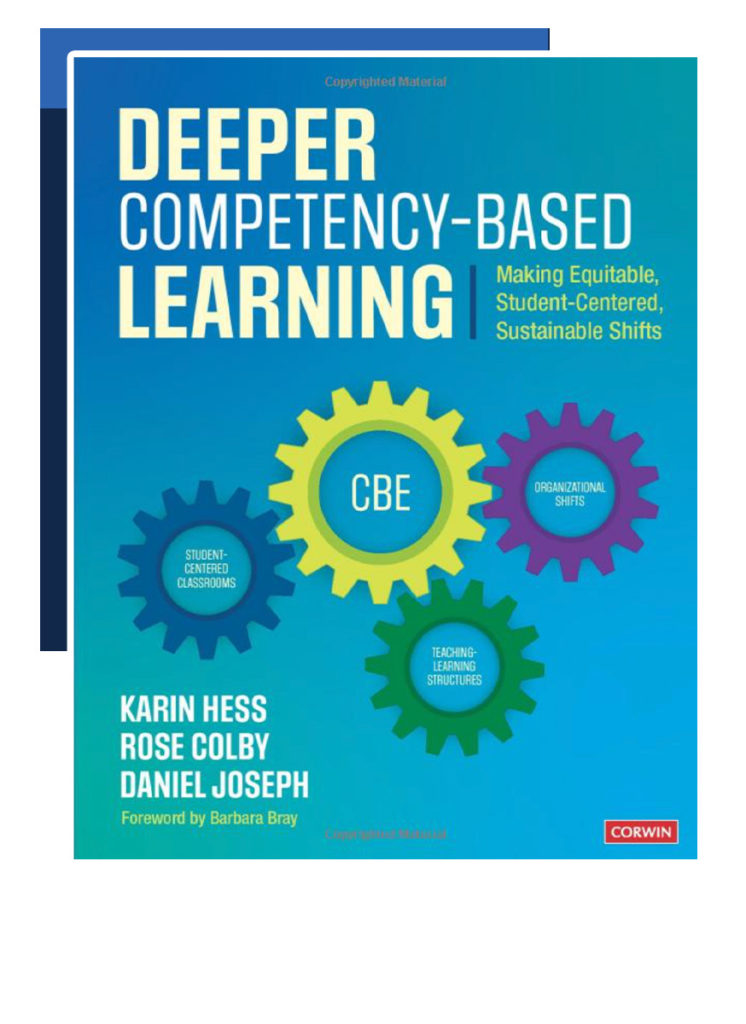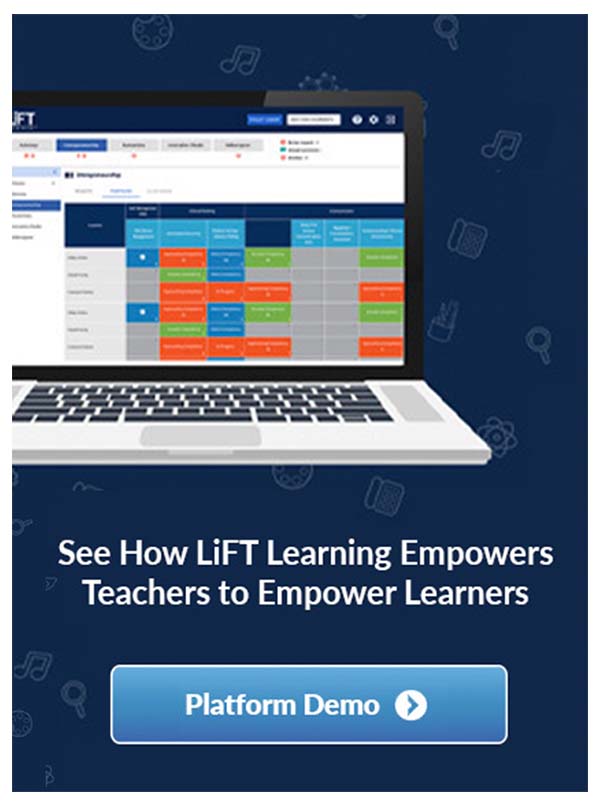Deeper Competency-Based Learning

Making Equitable Student-Centered, Sustainable Shifts


We have become so comfortable using these instructional assessment practices that keep our students within these small limits. It has no longer become effective to use these traditional approaches because every person has a different learning method that is most successful to them. Deeper Competency-Based Learning shares tips on how we can build the foundation for organizational shifts by examining policies, leadership, culture, and professional learning. Take a deep dive into the shift to student-centered classrooms through personalized instructional strategies that change mindsets regarding teacher-student roles, responsibilities, and classroom culture. Discover how your students can demonstrate deeper learning of academic content and develop personal success skills by maximizing time, place, and pace of learning with this roadmap for your CBE journey. Karin Hess, Rose Colby, and Daniel Joseph offer a guide for transitioning to student-centered learning in their new book Deeper Competency-Based Learning: Making Equitable, Student-Centered, Sustainable Shifts. Review as they share their expertise and answer questions around competency-based education.
What you learn from this book will inspire you and challenge you to go deeper, ask more questions and rethink every aspect of what school means and what it means to be a leader, a teacher, and a learner.
– Foreword
“It is clear to me that this new book will be a major step forward for US educators seeking to transform their systems of teaching and learning to one that provides equitable and practical access for every student. As the authors point out in the introduction, ‘the work of transforming to competency-based education is complex, requiring major shifts away from the conventional organizational structures of schools and away from many less-effective teaching and learning structures towards student-centered classrooms.’ This approach is just right: Competency-based education requires major changes organizationally, however, these shifts must be grounded in transformed experiences of the learner and of the teacher in the classroom first, and each additional change must support that experience through new structures and reformed culture.”
Paul K. Leather, Director – Interstate Learning Community, NH
About the Authors:
Karin Hess, author of the Hess Cognitive Rigor Matrix, is a former classroom teacher and school administrator with over 40 years of deep experience in curriculum, instruction, and assessment. Dr. Hess is recognized internationally as a leader in developing practical approaches for using cognitive rigor, depth of knowledge, and learning progressions as the foundation for curriculum design and assessments at all levels of assessment systems, from developing local assessment systems to state-level grade-level standards and test specifications for large-scale state assessments. Over the years, she has contributed to Maine’s early thinking about how to structure requirements for assessing high school graduation exhibitions and has provided technical assistance to Science Exemplars in the development and annotation of K-8 science performance tasks to the Center for Collaborative Education’s Quality Performance Assessment (QPA) initiative, and to Benchmark Education’s Ready to Advance curriculum for Pre-K, using learning progressions in curriculum and assessment design. Her most recent publications include a chapter in the second edition of Fundamentals of Literacy Instruction and Assessment, Pre-K–6 (Hougen & Smartt, Eds., Paul Brookes Publishing, 2020) and A Local Assessment Toolkit to Promote Deeper Learning: Transforming Research into Practice (Corwin, 2018). Karin’s ongoing CBE work has included guiding the development and implementation of New Hampshire’s K–12 Model Competencies and supporting school districts throughout the United States in creating and analyzing the effective use of performance scales and high-quality performance assessments for competency-based learning.
Rose Colby is a nationally recognized Competency-Based Learning and Assessment Specialist, assisting schools in designing high quality competency, assessment, and grading reform systems in many states. She is a Talent Cloud Fellow for 2Revolutions, an education design firm. She is a member of the national Advisory Board and contributor to CompetencyWorks, the national clearinghouse and resource for innovative practices in competency education. She has served as Competency Education Consultant for the N.H. Department of Education supporting school districts as they develop their competency education systems and in designing and supporting the new state accountability pilot system, the New Hampshire Performance Assessment for Competency Education (NH PACE). She is an Adjunct Professor at Southern New Hampshire University in the Masters/CAGS program in Competency Education. Rose is the author of two books on Competency Education: Competency-Based Education: A New Architecture for K-12 Schooling (Harvard Education Press, 2017) and Off the Clock: Moving Education from Time to Competency (Corwin, 2012.)
Daniel Joseph is the founder of CBE Solutions, an organization that supports districts in the strategic transformational shift from traditional, time-based education to personalized competency-based systems of teaching and learning. His involvement with a state level task force in the State of Maine, “Proficiency Based Diploma- Strategic Task Force” provided support for the systemic change in both practice and policy. In addition, Daniel also was the representative and building based leader for his school district which was part of the (ILN) Innovation Lab Network, CCSSO. Prior to founding CBE Solutions, he supported districts across the country in developing personal mastery systems of learning for Marzano Research and Reinventing School Coalition. Daniel teaches graduate level courses as an adjunct faculty member at Southern New Hampshire University and Saint Joseph’s College of Maine.


